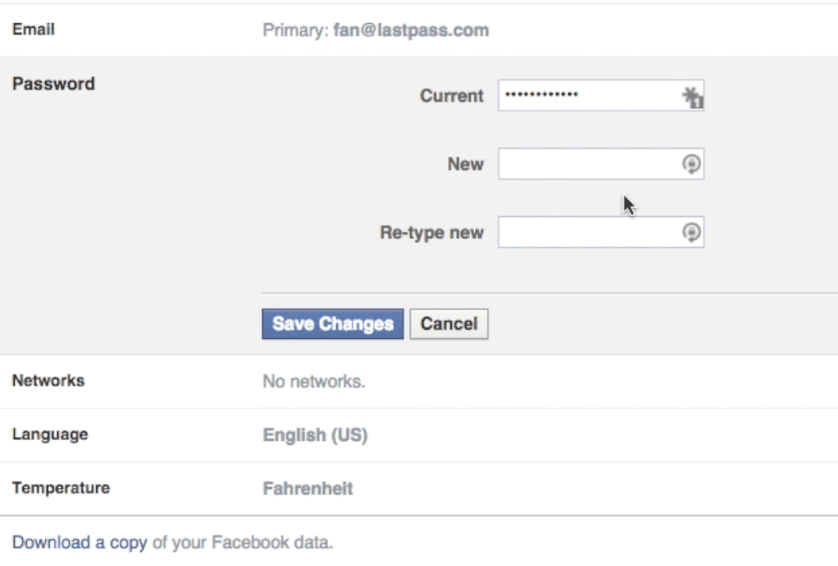Imagine you get a letter from your Internet service provider giving you some odd news: You’re not being accused of piracy, but there’s a court order demanding that the ISP hand over your information to a copyright holder who thinks you might be a pirate. That’s the case for several Cox customers who have been caught up in a lawsuit between the cable company and a mammoth music publisher. [More]
privacy

Innocent Cox Customers Fighting To Prevent Personal Info From Being Turned Over In Piracy Lawsuit

Privacy Advocates Abandon Facial Recognition Policy Talks In Protest
Facial recognition still kind of sounds like science fiction, but is a tech reality. It is, however, still a fairly new and unregulated reality — nobody quite knows how to handle it. So the Commerce Department brought together privacy advocates and industry representatives to hammer out a new code of conduct… and it is not going well. In fact, several of the advocates claim, the process is so broken that it can’t be fixed, and they are walking out. [More]

LastPass Asks Users To Update Master Password After “Suspicious Activity”
LastPass is a service that manages your logins by remembering your passwords, so you can imagine the havoc that could be wreaked if someone were to hack the company’s database and get at all that juicy, luscious login info. In a new blog post, the company says it has no reason to believe that any passwords have been compromised, but some data may have been and LastPass is now prompting users to update their master passwords. [More]

Uber’s Petition Website Hacked To Redirect To Lyft Homepage
It’s no secret that ride-sharing companies Uber and Lyft have enjoyed a spirited rivalry in recent years. Over the weekend, a security researcher inserted himself into the crosshairs of the two ride-hailing services by exploiting a vulnerability in Uber’s petition website that allowed him to showcase and redirect visitors to Lyft’s homepage, while also changing the content of some petitions. Now he’s warning the company – and others like it – to take precautions when using petition and contest websites, as they might prove to be a welcome mat for malevolent hackers. [More]

Iowa Supreme Court: You Have The Right To Be Drunk On Your Own Front Steps
Where do you draw the line between public and private spaces? Is being drunk on your personal front steps less of a public nuisance than if you were drunk on the stoop of an apartment building where you live with others? For the highest court in Iowa, the answer is yes. [More]

Judge Says USA FREEDOM Act May Scuttle Twitter’s Transparency Lawsuit
Last October, Twitter sued the Justice Department, the U.S. Attorney General, the FBI, and FBI Director James Comey, because the social media platform believed it has a First Amendment right to be fully transparent with its users about the number and nature of national security requests it receives from the government. But with the recent passing of the USA FREEDOM Act, the judge in the case says there may be no need for the lawsuit to move forward. [More]

Tech Industry Asks President To Please Not Weaken Encryption
While U.S. lawmakers recently passed legislation that would end certain types of invasive snooping by federal agencies, the Justice Dept. continues to push electronics manufacturers for backdoors that would allow law enforcement to access encrypted devices. A pair of trade groups representing a wide variety of electronics and online businesses have written President Obama asking him to consider the “global implications” of these efforts. [More]

Study: Consumers Give Up Data In Exchange For Discounts Because They Figure It’s All Out There Anyway
You’re shopping at a store you’ve never been to before. They offer to sign you up for a loyalty card. You know it’s going to create endless postal and electronic spam for you if you accept, but they’ll give you 40% off of this order if you do. So you take the card. The store thinks they just bought your info with a discount. Are they right? [More]

Roofing Company Sends Me A Postcard Of My Own House
Rebekah received an advertising flyer in the mail recently from a local roofing company. It was addressed to “Current Resident,” and she glanced at it before throwing it away. Wait…that house printed on the postcard looked familiar. It was her house. Unnerved, she sent the postcard over to us, asking, “Is this common?” [More]

4 Million Federal Employees Are The Latest Victims Of A Massive Data Breach
There are millions of federal employees in the country, and not just in Washington, DC. The government is a big bureaucracy and a big employer — and that makes it a nice, juicy target for a big data breach. [More]

Man Arrested For Allegedly “Corrupting” Wells Fargo Employees In Scheme To Access Customer Accounts
As a bank customer, you generally have an expectation that employees of said bank won’t share your personal or account information with someone that isn’t, in fact, you. But what happens when a person calls the bank claiming to be an account holder in the midst of an emergency and in need of quick cash? Federal prosecutors say that was the basis for a recent bank fraud scheme targeting Wells Fargo customers and employees. [More]

Senate Passes USA Freedom Act, Ushering In A Kindler, Gentler Era Of NSA Snooping
As expected following the June 1 expiration of one of the PATRIOT Act’s most controversial privacy-invading provisions, the Senate today passed a substitute bill, the USA FREEDOM Act (or rather, deep breath… the Uniting and Strengthening America by Fulfilling Rights and Ensuring Effective Discipline Over Monitoring Act of 2015) that prohibits the sort of mass data collection the National Security Agency enjoyed under the recently sunset Patriot provisions, but still leaves in place many concerns for privacy advocates. [More]

Patriot Act’s NSA Phone-Snooping Program Expires (For Now)
As lawmakers in D.C. flipped over their calendars from May to June last night, the sun set — at least temporarily — on the National Security Agency’s ability to collect mass amounts of information from telephone companies about their customers’ calls. [More]

Verizon Knows More About What You Watch On FiOS Than You Do
Verizon isn’t a cable company. Its FiOS product doesn’t spring from decades of guaranteed local monopolies, which means most FiOS customers can, if they get annoyed enough, jump ship to a competitor. But you leaving is bad news for Verizon. They want to keep their subscribers. And they have an enormous mountain of highly personalized data on hand to try to do it with. [More]

Uber Proposes Simpler Privacy Policy, Will Let Riders See Their Ratings
One feature of ride-hailing app Uber that’s meant to keep riders from acting like complete jerks is mutual rating: passengers rate their drivers, sure, but drivers also rate passengers. Secretly. Users can’t see their own ratings, but they could prevent someone from being picked up at a busy time. The company has promised to clarify its privacy policy and allow passengers to see their own ratings. [More]

Target Wants To Perfect Chip-and-PIN Before Venturing Into Digital Payment Methods
Consumers and businesses alike are always seeking out ways to streamline the checkout experience, most recently with mobile payment systems like Apple Pay and Android Pay. But there’s one major retailer that won’t be jumping into new payment options just yet. [More]

Data Breaches Now Cost Companies An Average Of $3.8M
The aftermath of a now all-too-common data breach can be frustrating for consumers: canceling credit cards, monitoring credit reports for irregularities, and working with banks to recoup unauthorized purchases. But the hacks can also be expensive for the targeted company, with the average cost now sitting at a 10-year high of $3.8 million. [More]

Flickr Robots Auto-Tag Every Photo, Auto-Annoy Users
Flickr’s survival is a minor miracle of the Internet age: it’s one of the few sites that Yahoo acquired in the last decade that it didn’t kill off or change beyond all recognition. That’s because of its core base of very loyal and very talented users. Unfortunately, that kind of base means a popular uprising whenever anything about the site changes, a minor revolt happens. [More]

